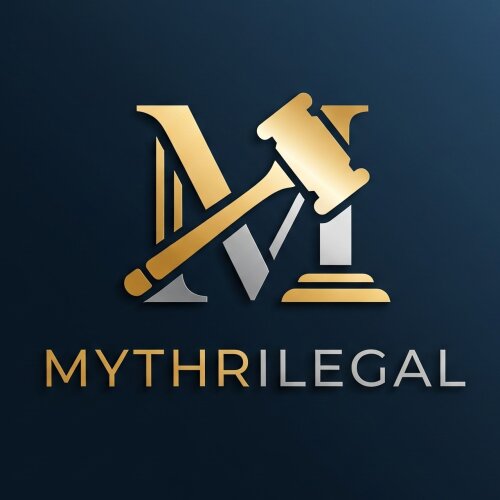Best Property Insurance Lawyers in India
Share your needs with us, get contacted by law firms.
Free. Takes 2 min.
Or refine your search by selecting a city:
List of the best lawyers in India
About Property Insurance Law in India
Property insurance in India covers a wide range of risks related to physical property loss or damage. It is an essential aspect of risk management for homeowners, landlords, and businesses alike. The insurance policies typically cover damages due to fire, theft, floods, earthquakes, and other specified events. The regulatory framework for property insurance in India is governed by the Insurance Regulatory and Development Authority of India (IRDAI), ensuring transparency and fairness in the industry. The policies and coverage can vary significantly among different insurers, making it crucial for policyholders to understand the terms and conditions thoroughly.
Why You May Need a Lawyer
While property insurance aims to protect policyholders, numerous situations may necessitate legal assistance:
- Claim Denials: Insurance companies may deny claims based on technicalities, exclusions in the policy, or disputes over the cause of damage.
- Policy Interpretation: Policies can be complex and open to multiple interpretations, requiring a legal expert to interpret the terms and ensure fair treatment.
- Negotiations: Legal counsel can assist in negotiating settlements with the insurer to maximize the claim benefits.
- Coverage Disputes: Disputes may arise over the scope of coverage, necessitating legal intervention to resolve such issues.
- Legal Documentation: Lawyers can help in drafting or reviewing legal documents related to property insurance to protect the client's interests.
Local Laws Overview
Property insurance in India is primarily regulated by the IRDAI, which sets the guidelines and frameworks within which insurers operate. Key aspects of local laws relevant to property insurance include:
- Standardization: Policies are standardized to a certain extent to ensure basic coverage across all insurers.
- Consumer Protection: The IRDAI promotes consumer protection by setting mandates for clear disclosure by insurers.
- Grievance Redressal: Insured individuals have access to grievance redressal mechanisms structured through the IRDAI.
- Anti-fraud Measures: Strict regulations are in place to prevent insurance fraud and protect the interests of honest policyholders.
Frequently Asked Questions
What is covered under property insurance in India?
Property insurance typically covers damages or losses due to fire, theft, natural disasters, and other specific perils as outlined in the policy.
How do I file a claim for property insurance?
To file a claim, notify your insurer immediately, document the damages with photos, and complete any forms required by the insurance company before assessment and settlement.
What can cause a property insurance claim to be denied?
Claims can be denied due to non-disclosure of important information, filing past deadlines, causes not covered by the policy, or insufficient coverage.
Can my insurance premium be increased after a claim?
Yes, filing a claim can sometimes lead to an increase in the premium upon renewal, depending on the insurer’s policies.
What do I do if my claim is denied?
If your claim is denied, you can request a review by the insurer, seek arbitration, or consult a legal expert to explore further action.
Is earthquake coverage included in standard property insurance?
Earthquake coverage is often an additional option that policyholders must specifically opt-in for, as it is not typically included in standard policies.
How can I ensure I am getting the appropriate insurance coverage?
Review the policy details thoroughly, consider consulting with an insurance advisor, and regularly update the coverage to match your property’s value and risk profile.
How long does it take to settle an insurance claim?
The timeframe can vary, but insurers typically aim to settle claims within a stipulated period, usually 30 days after the claim is filed and all documentation is submitted.
What are deductibles in property insurance?
A deductible is the amount you agree to pay out of pocket before your insurance coverage kicks in. Selecting a higher deductible can lower your premium costs.
Can a policy be transferred if I sell my property?
Generally, property insurance policies are non-transferable, but the new property owner can purchase a new policy upon ownership transfer.
Additional Resources
For further assistance and detailed information, consider reaching out to the following organizations:
- Insurance Regulatory and Development Authority of India (IRDAI): The official regulator for insurance in India.
- Consumer Protection Act bodies: Help with grievances and disputes in case of unfair practices by insurers.
- Legal Aid Services: NGOs and government-supported legal aid services that provide assistance for insurance disputes.
- Insurance Ombudsman: Offers a fast and inexpensive dispute resolution mechanism for policyholders.
Next Steps
If you find yourself needing legal assistance with a property insurance matter, consider taking the following steps:
- Review Your Policy: Understand the terms and coverage of your policy to identify potential issues.
- Contact Your Insurer: Attempt to resolve the issue directly with your insurance provider.
- Consult a Lawyer: Seek professional legal advice to explore your options, especially for complex disputes or claim denials.
- File a Complaint with IRDAI: If necessary, raise a formal complaint with the IRDAI for regulatory intervention.
- Utilize Dispute Resolution Mechanisms: Leverage ombudsman services or consumer protection courts if needed.
Lawzana helps you find the best lawyers and law firms in India through a curated and pre-screened list of qualified legal professionals. Our platform offers rankings and detailed profiles of attorneys and law firms, allowing you to compare based on practice areas, including Property Insurance, experience, and client feedback.
Each profile includes a description of the firm's areas of practice, client reviews, team members and partners, year of establishment, spoken languages, office locations, contact information, social media presence, and any published articles or resources. Most firms on our platform speak English and are experienced in both local and international legal matters.
Get a quote from top-rated law firms in India — quickly, securely, and without unnecessary hassle.
Disclaimer:
The information provided on this page is for general informational purposes only and does not constitute legal advice. While we strive to ensure the accuracy and relevance of the content, legal information may change over time, and interpretations of the law can vary. You should always consult with a qualified legal professional for advice specific to your situation.
We disclaim all liability for actions taken or not taken based on the content of this page. If you believe any information is incorrect or outdated, please contact us, and we will review and update it where appropriate.
Browse property insurance law firms by city in India
Refine your search by selecting a city.
















